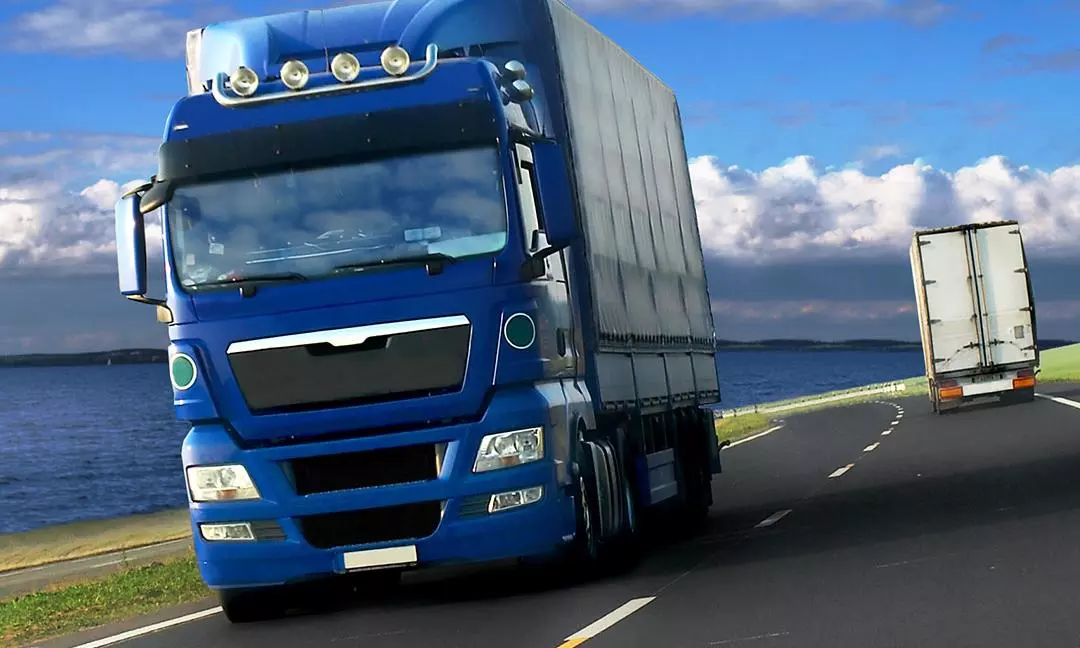Logistics trends to watch out for in 2024

Transportation and logistics systems across the country will change a lot in the new year. There will be enough money set aside by the Centre for the growth projects. Infrastructure growth will be led by multimodal transport, coastal shipping, warehousing, and logistics parks. This will be made possible by aggressive road construction. Unless these three things are well developed, the cost of logistics in a country can't go down. The future of logistics in any country depends on how well these three things are developed. As for the supply line, a lot of work will be done to digitise it and make it more environmentally friendly. Digitization can also be thought of as making a separate world out of letters and numbers to improve performance, efficiency, and output in the logistics field.
Technology implementation
India shall be the leaders globally in these fields. We will see an increase in investment in Technology implementation by individual logistics players, while lot of innovation and speed in manufacturing of EV, alternate fuel and battery technology will be the front runners in 2024. In 2024, the logistics industry is poised for transformative shifts driven by sustainable practices, widespread technology adoption, and accelerated digitization. The integration of eco-friendly initiatives will redefine supply chains, emphasizing sustainability. Technology advancements, particularly in AI and IoT, will optimize operations, enhance efficiency, and provide real-time insights. Machine learning and data analytics supported by cloud computing and storage will be the fields wherein India shall definitely be the leaders globally and will be most preferred country with which all other countries in the world would like to support and keep a working relationship inviting huge global investment. Digitization will streamline processes, fostering seamless communication and transparency. These trends will significantly boost operational agility, and cultivate a tech-driven ecosystem, ultimately enhancing overall performance and customer satisfaction.
Sustainability
Sustainability in logistics is set to evolve with an increased focus on eco-friendly practices. The adoption of EV will surge, reducing carbon footprints in logistics operations. These sustainable initiatives will directly influence the business operations by necessitating a shift towards greener logistics practices aligning with evolving consumer expectations for environmentally responsible operations. Actions in these areas will for sure see lot of innovations in the field of solar energy, work related to battery production for EVs, lithium related innovations, substitutes for fossil fuels, work related to hydrogen fuels, reduction in carbon emissions and lead work related to carbon zero credits etc .Battery operated machines inside warehouses and other logistics areas, software system utilization, drones, last mile delivery etc will be areas where we can see huge traction in coming months and the new year will see a lot of work being done in all these areas. Numerous start-ups and investments shall be the order of the day as we move along in the coming year.
Training initiatives
As automation spreads, the role of human workers is expected to shift towards higher-level tasks, such as supervising and managing automated systems, problem-solving, and customer service. To harness the benefits of this transformation, strategy involves upskilling employees and customers to effectively collaborate with automated systems. Continuous training in the running of these software systems, processing centres, analytics need to be ensured to establish a harmonious coexistence between human workers and automation. In addition, we need to ensure that training into different logistics processes is imparted to a wide section of personnel, to ensure quality manpower is built and easily available as we move forward in all areas of logistics. This is in dearth in the current era. Continuous training programs with focus on productivity improvement, efficiency development and digitization should be implemented at all levels and in every organization to grow them to be amongst the top performing organizations globally.
Logistics ecosystem will hear a lot more on geopolitical disruptions in 2024, thus increasing the work in areas of developing robust resilient measures to survive these difficult times. Considering the unpredictable nature of global events or the VUCA world, the logistics industry has proactively established resilient strategies to ensure business continuity. Key initiatives include diversifying suppliers and distribution channels to mitigate risks linked to disruptions. Localization or regionalization in place of globalization will be the new principles basis which Supply Chain will be working as we move forward. Flexibility in supply chain and contingency plans enables swift adaptation to unforeseen challenges. Collaborative partnerships with key stakeholders form a network for information exchange and mutual support.
While businesses in auto, engineering, white goods, FMCG sectors and e-commerce shall continue to boom in 2024, the same cannot be said about chemical logistics, as most of the global chemical companies are passing through a severe recession, coupled with energy and oil crisis forcing them to go on defensive mode. Food and pharma sectors will need continued support from the government to boost their trading numbers. Start-ups will see lot of traction and last mile delivery in the field of e-com shall assume tremendous importance. Defence logistics will start growing significantly. Work in the areas of road construction will continue to prosper, pushing India into a leading economic superpower by the end of next year. Road connectivity shall continue to be the backbone of logistics and supply chain industry and will see huge investment by the centre and states in coming years. This shall be instrumental in bringing down the logistics cost to single digit in the coming year. The only voice of discordant note will be the geopolitical scenario, which will push global logistics to the edge of precipice, due to continued pressure on the freight markets, increase in logistics cost, equipment shortages, delays in availability of cargo and delay in shipping schedules.
The views and opinions expressed in this article are those of the author and do not necessarily reflect the views of Indian Transport & Logistics News.



